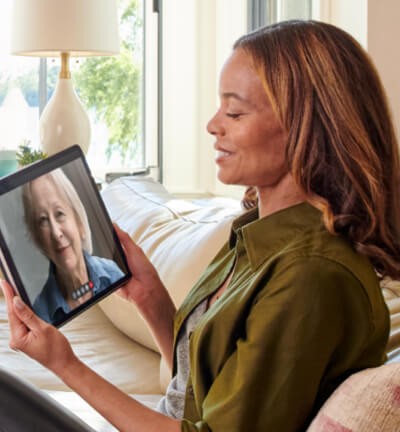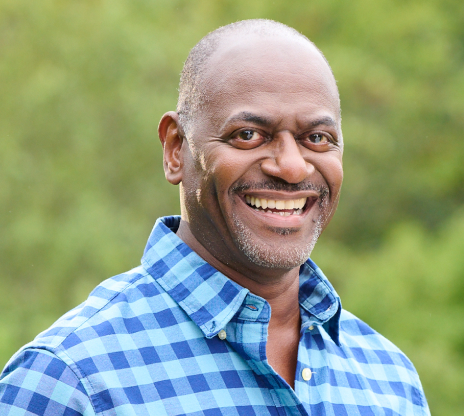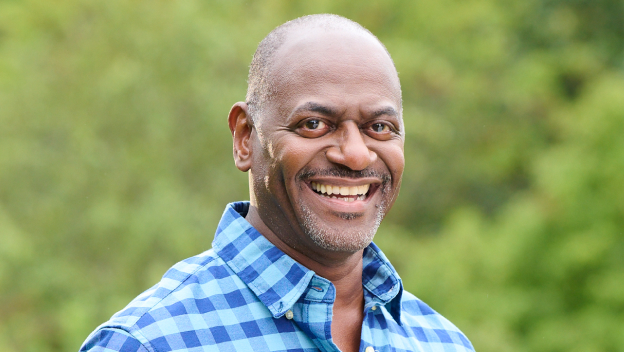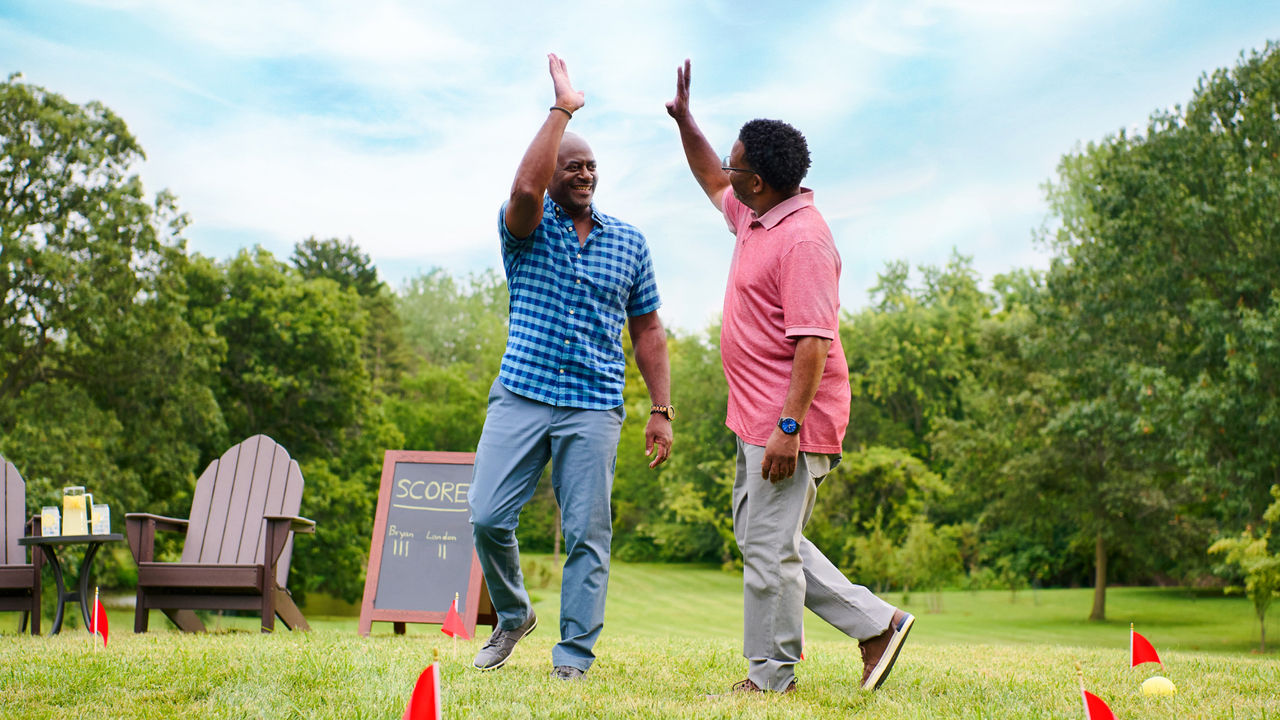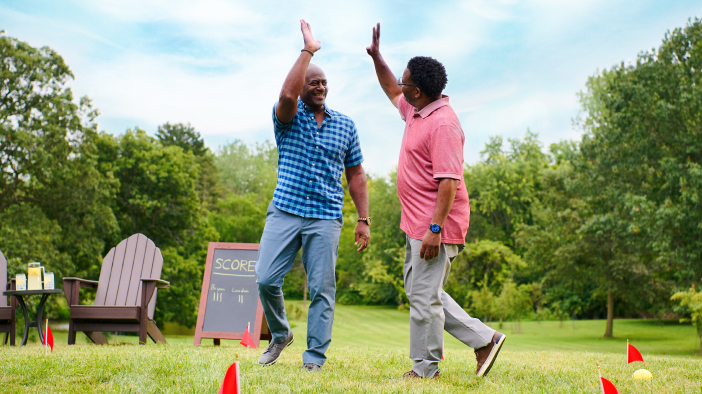Bryan was in his mid-20s when he first encountered signs of MG without realizing it. While playing basketball with friends, his leg suddenly gave out. He dismissed it as overexertion, but a more alarming incident soon followed. While driving, severe weakness in his leg made it impossible to move his foot to the brake as he approached a red light. “My mind is saying, ‘Stop the car,’ but my leg is saying, ‘No, I don’t want to,’” Bryan recalled. “I’m getting closer to the red light with three people in the car, and I’m like—I need my leg to work.” Bryan managed to stop the car safely, but that moment was a wake-up call. He could no longer ignore his symptoms, as the toll on his daily life became unbearable. Determined to find answers, Bryan visited a neurologist, underwent various tests and was finally diagnosed with MG.
Over the next three decades, Bryan’s MG symptoms continued to fluctuate unpredictably, affecting his legs, speech, breathing and eyesight. For Bryan, when an MG flare intensifies, so does the emotional strain. He grapples with anxiety about losing his independence and worries about handling even simple, everyday tasks. Sometimes he even rejects help due to fear of being judged or appearing weak, a struggle that reflects the emotional weight Bryan carries as he faces life with MG.
Spending time with loved ones is an important aspect of Bryan’s life. At times, he must cut activities short due to MG symptoms. He recalls an outing with family where fatigue set in and he began to lose his balance, making it difficult to walk. His family noticed his struggle and gathered around him for support. “One of the challenges, for me, is that I have to let go of my pride,” he shared.
But he’s learned that living with MG involves shifting his perspective and appreciating those willing to assist him. He’s grateful for family who shows up yet gives him space to figure things out on his own terms. Bryan understands that there are moments when MG makes it difficult to do everything he wants to do.
One of the things I’m mindful of as a person living with MG is how much I push myself.
MG changes your life in ways that can be difficult to accept. Even with all these years of living with MG, Bryan is still learning to have compassion and grace for himself in moments when he can’t engage in life as he desires. He has learned to be aware of his energy levels and to give himself rest when his MG flares: “I check in with myself by deciding how much energy to use for each task. Even if I only complete three out of the 12 things I planned, I focus on what I’ve achieved, rather than what I haven’t. I remind myself that getting those three things done is still progress.”
Despite his struggles, Bryan has found ways to adjust—reworking expectations, prioritizing tasks, shifting his mindset and working with his healthcare team to manage his symptoms. By doing so, he discovers his greater potential every day while living with MG. With the proper resources and support, you can also work toward your personal goals and try to achieve more.
Having confidence in your medical team means knowing that no matter the symptoms, they will be there for you.
MG affects everyone differently, so it’s crucial to identify which symptoms impact you. Bryan tracks his symptoms, which empowers him to manage his condition both personally and in collaboration with his doctor. “This helps your neurologist track your symptoms, allowing them to determine if adjustments are needed, such as modifying the dose or frequency of your treatment. Without proper documentation, you’re just guessing,” Bryan said. Symptom tracking may help those living with MG understand how symptoms fluctuate over time and help to identify triggers. Bryan suggests that gathering this information can lead to meaningful conversations with your doctor and help you make informed decisions about treatment and symptom management.
Be more engaged, be more involved and reach out more to your healthcare team.
A key strategy in Bryan’s journey is his commitment to continuously learning about MG. By educating himself about his condition, Bryan feels he can better advocate for his needs and collaborate more effectively with his healthcare team. At the start of his journey, Bryan knew little about MG, which often left him feeling isolated and uncertain. Today, he has access to tools and resources that helped him build a strong sense of community through connections with his healthcare team and others living with MG. “Now, there are avenues to explore and people to talk to who can help me learn about the resources available so I can better implement them into my life,” he mentioned. Although MG can be challenging, Bryan has empowered himself by becoming his own advocate, taking control of his health and navigating his condition with strength, grace and confidence.






